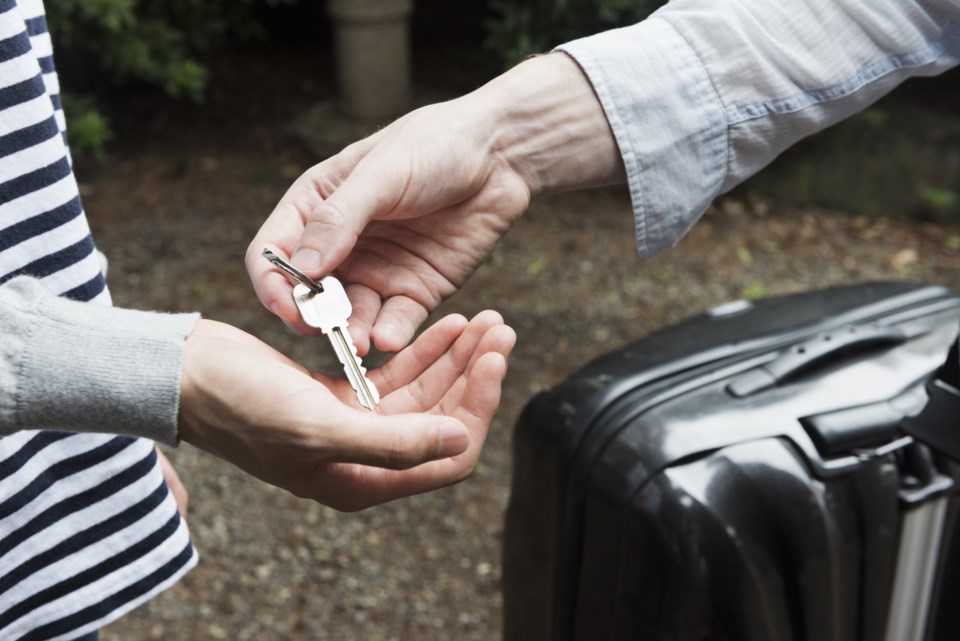As concerns about short term rentals (STR) such as AirBnb pop up in numerous municipalities around Ontario, city council has given the green light to a host of regulations on STRs within Orillia.
The new rules stem from an inquiry motion by Coun. Whitney Smith, who started the discussion earlier this year after hearing about numerous STR issues from her constituents. On Monday, city politicians approved the regulations.
Among the new rules are a $2,000 annual licensing fee payable to the city, a requirement for STR operators to pay the four per cent municipal accommodation tax (MAT), and a discretionary $200 charge for bylaw enforcement inspections that arise from complaints.
With the regulations set to roll out on Jan. 1, 2024, some of the additional rules to be imposed on STRs are as follows:
- Requiring proof of insurance from STR owners of no less than $2 million, per occurrence, for property damage and bodily injury;
- Imposing a demerit point system for infractions, providing the city with the authority to revoke STR licences after 15 demerit points;
- Prohibiting more than 150 short-term rentals from operating in the city at any time;
- Prohibiting more than two persons per bedroom on the property between 10 p.m. and 7 a.m., and a maximum of 10 people regardless of the number of bedrooms;
- Requiring signs, to be visible from the road, detailing the maximum occupancy for the STR, its address, rental contact information, and city bylaw contact information;
- Requiring a “responsible person” to be available 24/7, and within one hour of any request to deal with complaints regarding an STR.
City staff plan on hiring an employee, starting in October, to prepare the city for enforcing the regulations in 2024, as well as an additional seasonal staffer to assist with the high demand periods through the busier tourist season.
At Monday’s meeting, Smith introduced amendments to the regulations that would see them go beyond their current scope.
Council agreed on some of her ideas, such as the lawn signs, and increasing the inspection fee from staff’s recommended $100 to the approved $200, but others did not make the cut – such as her hope to retroactively require STR operators to pay the MAT (set at four per cent) on their activity since it was introduced in 2020.
Though some members of council initially agreed with retroactively imposing the MAT, city staff explained that – when it was introduced – the tax was only meant to apply to STRs once licensing regulations were in place.
“When the MAT issue was brought forward in 2019, the specifics of the report identified short-term accommodation rentals … would certainly be subjected to the MAT tax,” said CAO Gayle Jackson. “However, how it was identified during that term of council, which was the term that adopted the bylaw, was that short-term rentals be subject to the MAT pending council's direction regarding their licensing.”
Ultimately, Smith agreed.
“When I brought that up, I wasn't aware of the complete discussion … so I'm fine with this being removed,” she said.
Coun. Janet-Lynne Durnford expressed concern that neighbouring residents might abuse the complaint system, which could lead to undue punishment on STR operators.
“Could you speak to … the potential for overuse of complaints by neighbours, or whomever, which would then trigger a constant inspection?” she asked city staff. “I have some concerns there that could be abused or misused, let's say, against the (STR) owners.”
Shawn Crawford, the city's manager of legislative services, explained the issuing inspection penalties would be at the discretion of bylaw officials.
“In speaking with some of the other municipalities, they made it crystal clear that, yes, there are some residents in those communities that are out to get the STR operators shut down, so unfortunately there's some legitimate complaints being filed with what I will call frivolous or vexatious type complaints,” he said. “What we’ve got to do … is weed through those, figure out which ones are legit complaints and provide enforcement if there's actually a violation.”
During the meeting, Coun. Ralph Cipolla questioned whether the regulations would be applied to a property owner who rented a room out for a week or so, and city staff responded that STR regulations apply to anyone who strikes a rental agreement lasting less than a month.
Council’s decision on Monday is subject to ratification at its next meeting on Aug. 14.
